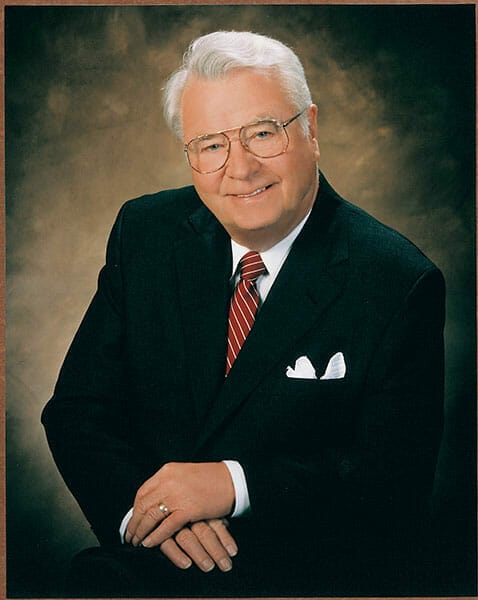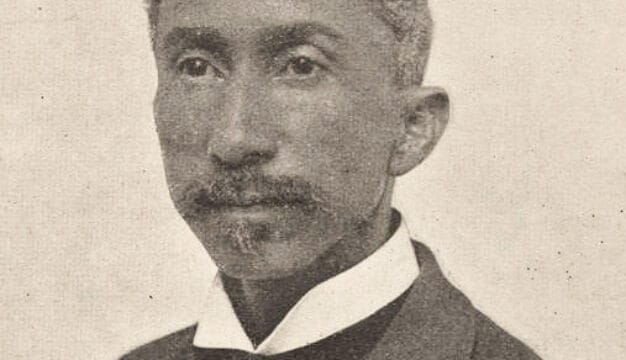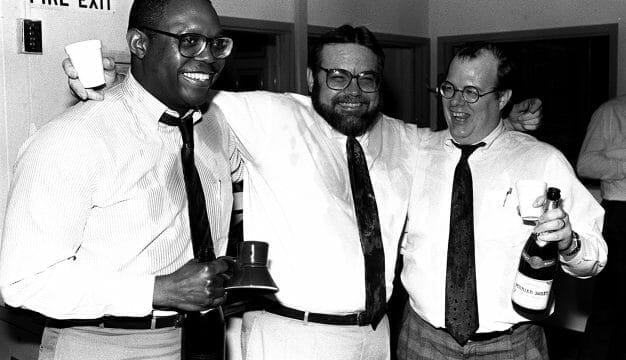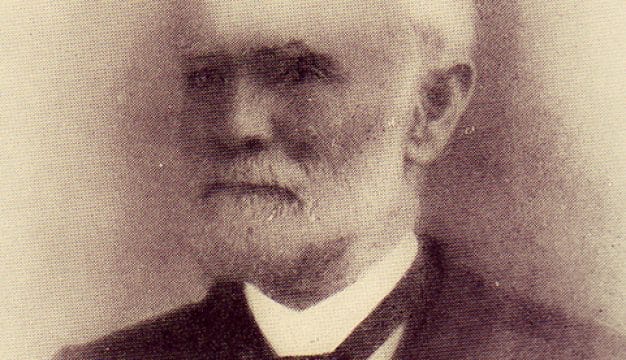James D. Martin
James Douglas Martin (1918-2017) represented Alabama’s Seventh Congressional District in the U.S. Congress from 1965 to 1967. Though his time in Congress was short, Martin played an instrumental role in the political history of Alabama as one of the first truly popular Republican candidates since Reconstruction. He helped establish Alabama’s modern Republican Party, holding and running for a variety of offices and facing off against such notable Democratic figures as Sen. Lister Hill and future governor Lurleen Wallace. He then served as commissioner of the Alabama Department of Conservation and Natural Resources from 1987 to 1999 and was a key figure in establishing the state’s Forever Wild Land Trust program in 1992.
 James D. Martin
Martin was born September 1, 1918, in Tarrant, Jefferson County, to Richard E. Martin, an L&N Railroad engineer, and Mary Martin, a teacher. He had four siblings. After graduating from Jefferson County High School, Martin attended Massey Business College and the Birmingham School of Law and then took a job in the petroleum industry as a distributor. Martin enlisted in the U.S. Army shortly before the United States entered World War II and served in the European theater commanding a battalion of artillery in the Sixty-fifth Infantry Division under Gen. George S. Patton and later as an intelligence officer. Martin’s military record notably included helping to liberate of one of the first concentration camps discovered as well as assisting in the rebuilding of Austria. Martin returned home a major and quickly established himself as a successful and respected businessman, founding Martin Oil Company. A handsome and charming figure, Martin married the 1937 Miss Alabama, Patricia McDaniel, and the couple would have three children.
James D. Martin
Martin was born September 1, 1918, in Tarrant, Jefferson County, to Richard E. Martin, an L&N Railroad engineer, and Mary Martin, a teacher. He had four siblings. After graduating from Jefferson County High School, Martin attended Massey Business College and the Birmingham School of Law and then took a job in the petroleum industry as a distributor. Martin enlisted in the U.S. Army shortly before the United States entered World War II and served in the European theater commanding a battalion of artillery in the Sixty-fifth Infantry Division under Gen. George S. Patton and later as an intelligence officer. Martin’s military record notably included helping to liberate of one of the first concentration camps discovered as well as assisting in the rebuilding of Austria. Martin returned home a major and quickly established himself as a successful and respected businessman, founding Martin Oil Company. A handsome and charming figure, Martin married the 1937 Miss Alabama, Patricia McDaniel, and the couple would have three children.
All of these factors led Republican leaders in the state, just prior to their June 1962 convention, to consider Martin a good candidate for public office. Martin, a conservative Democrat, changed his affiliation around this time to Republican. He was also encouraged by John Grenier, a young lawyer who was largely responsible for reenergizing Alabama’s Republican Party, and with Grenier’s help, Martin set his sights on Sen. Lister Hill’s seat. Hill, despite being a staunch conservative on issues such as racial integration, was often portrayed as too liberal for Alabama for his progressive views on many issues and also was burdened by Pres. John F. Kennedy’s high disapproval ratings in Alabama for his support for civil rights. Martin exploited this unpopularity to its fullest by working Kennedy into his speeches and rhetoric as much as possible as well as implying that Hill was closely allied with the president. Armed with far better funding, a more organized base, and catchy slogans like “Rebels for Martin,” he gave the aging Hill the toughest challenge of his career. Hill, however, edged by with a margin scarcely above one percent, leading Martin and others to question the results. Although unsuccessful, the close campaign significantly boosted the profiles of both Martin and the Alabama Republican Party.
After the failure of the Alabama legislature to pass a redistricting bill before the 1964 election, Democratic candidates had to run in their previous districts in May and then run in an at-large race in November. Recognizing that the political landscape of the state was changing, with Alabama voters becoming more conservative and the Republican Party beginning to make inroads, Albert Rains of the Seventh Congressional District (primarily the Black Belt counties of western Alabama) announced he would not run for reelection in 1964. Martin again ran for office, this time against a newcomer like himself rather than an entrenched incumbent, and had little difficulty dominating the race. Martin won by a large margin, defeating Democrat George C. Hawkins, a somewhat progressive former state representative and state senator whom Martin linked to liberal Minnesota senator Hubert Humphrey. Republicans also won four other congressional seats in the election, heralding the party’s rise in Alabama. Once in office, Martin’s critics claimed he spent too much time focusing on local issues such as the civil rights movement in Alabama and planning future campaigns. Following the Selma to Montgomery March, Martin strongly denounced Martin Luther King Jr. as a “rabble-rouser.” He voted against the 1965 Voting Rights Act outlawing discriminatory voting policies. Bowing either to pressure from his party or to an overestimation of his popularity, Martin declined to run for reelection and instead set his sights on the governorship. He was succeeded in Congress by Democrat Tom Bevill.
Although Martin had previously gotten along well with George C. Wallace, Martin’s gubernatorial race against his wife Lurleen in 1966 proved vicious. Martin made a number of costly gaffes, notably insulting the intelligence of Wallace’s supporters and making sexist remarks about Lurleen, which the Wallaces used to their advantage. After these comments became public, Martin used them in ads suggesting Lurleen was not capable of running the state without a man’s help. These missteps, along with George Wallace’s enormous popularity, helped Lurleen win by a wide margin after surviving a crowded Democratic primary. Martin made other unsuccessful Senate runs, losing the Republican primary to Winton M. Blount Jr. in 1972 and to Donald Stewart in the 1978 general election.
Martin ended his career in public service as commissioner of the Alabama Department of Conservation and Natural Resources. Appointed to the position by Gov. Guy Hunt in 1987, Martin was an eager supporter of preserving Alabama’s undeveloped land and convinced Hunt to create a state land-acquisition program, the Forever Wild Land Trust, in 1992. He left a lasting mark on the office, improving the state parks and using his experience in the oil industry to add millions of dollars to the state’s oil and gas trust fund. A portion of these funds go toward Forever Wild and has enabled the state to purchase more than 200,000 acres of land for permanent preservation.
Martin holds the distinction of being among the longest living members of Congress. He was inducted into the Alabama Academy of Honor in 2009, and the James D. Martin-Skyline Wildlife Management Area in Jackson County and the James D. Martin Wildlife Park (a stop on the North Alabama Birding Trail) in Gadsden on Lake H. Neely Henry were named in his honor. On October 22, 2013, Gov. Robert Bentley declared James D. Martin Day. Martin died on October 31, 2017, in Gadsden.
Additional Resources
Gwin, Gaylon. “Forever Wild: Four Years Later.” Outdoor Alabama 49 (Winter 1997): 26–29.
Hamilton, Virginia Van der Veer. Lister Hill: Statesman from the South. Revised edition. Tuscaloosa: University of Alabama Press, 2004.
Hathorn, Billy B. “James Douglas Martin and the Alabama Republican Resurgence, 1962-1965.” Gulf Coast Historical Review 8 (Spring 1993): 52-73.
Martin, James D. “Forever Wild.” Alabama Conservation 44 (Summer 1992): 4.
Roberts, Charles K. “Race, Wallace, and the 9-8 Plan: The Defeat of Carl Elliott.” Alabama Review 62 (April 2009): 113-44.
Young, Julia Marks. “A Republican Challenge to Democratic Progressivism in the Deep South: Alabama’s 1962 United States Senatorial Contest.” M. A. thesis. Auburn University, 1978.



